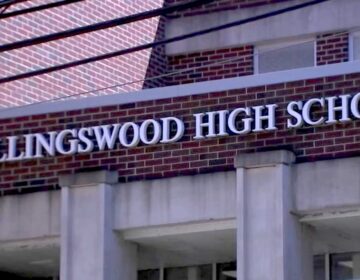School Reform Commission votes to close eight Philly schools, spare two
The School Reform Commission voted Thursday night to close eight District schools, but spared E.M. Stanton and Isaac Sheppard Elementary Schools.
“The SRC has been very clear in its commitment to maintain its focus on student achievement while we work toward fiscal stability,” said SRC Chairman Pedro Ramos. “Tonight’s vote reflects those priorities.”
The schools that will close are Harrison, Drew, and Levering Elementaries; Pepper Middle and Sheridan West Academy Middle; FitzSimons and Rhodes High Schools (the latter to become a middle school); and the Philadelphia High School for Business and Technology.
The closures will save the cash-strapped District a projected $6 million next school year.
But the big news was that both Stanton and Sheppard will remain open. For months, supporters had mounted vigorous defenses of their schools, stressing high-quality academics, strong partnerships, and a family environment.
Before the vote, the SRC unanimously agreed to remove the two schools from consideration, stressing the need to support, rather than dismantle, high-performing District schools.
“I feel very strongly that we try to do no harm,” said Commissioner Joseph Dworetzky.
Parent Temwa Wright, one of dozens of Stanton supporters who have lobbied the SRC for months to keep their school open, expressed elation.
“Thank you for listening,” Wright told the commissioners. “I’m so proud to be a parent in the Philadelphia School District.” State Sen. Anthony Williams, a frequent District critic and a strong proponent of charter schools and vouchers, praised the SRC for finding a way to keep Stanton open.
The school, Williams said, is “an example of what can happen in public education in Philadelphia” and should be replicated across the city.
Thursday’s vote comes at the end of a months-long facilities master planning process. For over a year, District officials have said they needed to shed 40,000 excess seats to address an aging infrastructure, changing neighborhood demographics, and declining student enrollment exacerbated by an exodus of students to charter schools.
In the weeks leading up to the vote, it became increasingly clear that the District’s recommendations to close E.M. Stanton and Sheppard had presented the SRC with a quandary: In both cases, the need to downsize the District’s infrastructure was at odds with a new focus on expanding high-performing schools through the Great Schools Compact.
Commissioner Feather Houstoun said the SRC came to the conclusion that decisions must be made through the lens of supporting high-quality educational opportunities for students. But she stressed that in order to fix the District’s long-term budget problems, as many as “four or five dozen” additional closings could be necessary.
“That is still a realistic vision of what we need to accomplish in the next two or three years, if not sooner,” Houstoun said.
Commissioner Wendell Pritchett agreed that more closings will be necessary and said he would push for both Stanton and Sheppard to be relocated.
“We continue to have too many facilities that are too old to support a modern academic program,” Pritchett said. “We must work harder to invest our resources in facilities that are sustainable.”
Nevertheless, teacher Holly Shaw-Hollis was among those who expressed relief that Stanton will remain open.
“Stanton’s been my heart and soul,” said the 22-year veteran of the school. “We’re all kind of speechless right now.”
A few supporters of other schools made last-ditch efforts to sway the SRC.
Arthur Wood, the principal of Pepper Middle School, questioned the academic performance and climate of the schools where his students would be reassigned.
“The quality of those schools are not as good as Pepper,” Wood said.
It wasn’t enough.
Houstoun was the lone vote against closing Pepper. Commissioner Lorene Cary stood alone in voting against closing FitzSimons and Rhodes. The SRC voted unanimously to close Drew, Harrison, Sheridan West, and the Philadelphia High School for Business, and also to relocate AMY Northwest to the Levering facility.
FitzSimons and Rhodes had operated as single-sex schools, FitzSimons for boys and Rhodes for girls. Dworetzky said he was interested in exploring ways to maintain single-sex environments.
Cary said she voted no on the closings of Rhodes and FitzSimons because of the “fragility” of the students and concern that they would not be served as well in a big high school.
“I’m going to ask staff to figure out how we can be more careful about student reassignment,” she said.
Houstoun said she opposed the closing of Pepper because she was “taken by both the environmental education and sports opportunities that the facility provides. … I wish there is a way we can use the campus in a way that continues to offer those opportunities for students.”
Rhodes will be converted to a co-ed middle school.
Before voting yes on the closure of Levering Elementary in Roxborough, Cary responded to emotional testimony from parent Julie Melnick, who told the SRC she was “completely worn out from trying to find ways to save the Levering program.”
“This is an opportunity to acknowledge the amount of sadness and trauma and chaos that closing schools creates,” Cary said. “We know it, and yet we must go through the process to rightsize.”
Public School Notebook editorial intern Oscar Wang contributed reporting to this piece.
WHYY is your source for fact-based, in-depth journalism and information. As a nonprofit organization, we rely on financial support from readers like you. Please give today.



















